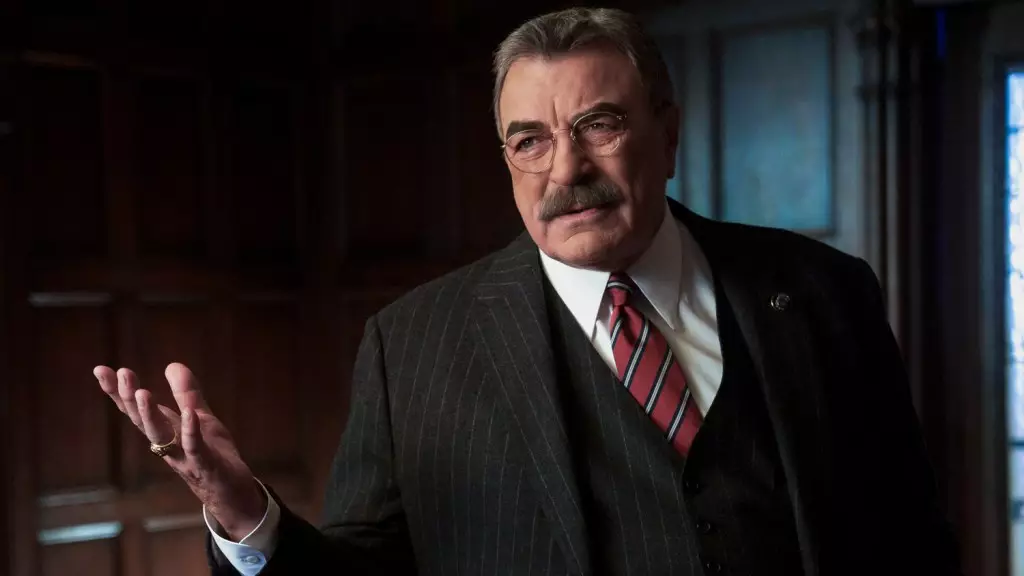The recent announcement from CBS regarding the conclusion of “Blue Bloods,” a revered police procedural, has stirred a whirlwind of emotions among its cast and audience alike. Tom Selleck, who has invested over a decade and a half into portraying NYPD Police Commissioner Frank Reagan, expressed his feelings of frustration and bittersweet nostalgia in a recent interview with TV Insider. As viewers prepare to bid farewell to the series, it’s important to reflect on not just the journey of the show, but also the implications of its untimely end.
Selleck’s disappointment stems primarily from a sense of being taken for granted by the network, despite “Blue Bloods” consistently ranking among the top scripted shows on television. Averaging 8.1 million viewers—a remarkable accomplishment in today’s fragmented viewing landscape—it seems to defy the odds of modern broadcasting. In the words of Selleck, “It’s going to take a long time to sort all of this out.” For a show that has not only survived but thrived across 14 seasons, the abrupt decision to end its run raises questions about the nature of success in the television industry.
This sentiment is reflective of the broader challenges facing long-running series. While “Blue Bloods” maintained viewer loyalty, factors such as production costs and network programming strategy ultimately dictated its fate. The dynamics of the industry seem to favor newer content and trends over established properties, leading to what many fans perceive as a dismissive approach to shows that have proven their worth.
Selleck’s emotional connection to the show is palpable. He recounts the dissonance he felt after finishing the last episode, highlighting an experience that resonates with many actors as they wrap up long-term projects. The sense that there was no more dialogue to prepare for the following week struck a bittersweet chord. It’s an unnerving realization for any artist to suddenly face the void left by a project that has occupied years of their life.
Moreover, the camaraderie among the cast is evident. Selleck emphasized that the entire ensemble wished to continue, showcasing not just professional relationships but also a family-like bond that can be rare in Hollywood’s fast-paced environment. The collaborative spirit that defined “Blue Bloods” underscores many reasons why the series will be missed—not just for its gripping storylines but for the warmth and authenticity that radiated from its characters.
Reflecting on CBS’ rationale for the cancellation, it is essential to understand the network’s position. Amy Reisenbach, the president of CBS Entertainment, cited a strategy aimed at refreshing the schedule—a common motive in an industry that often prioritizes innovation over familiarity. However, one must ponder the cost of this “refreshing” approach. When beloved programs are swiftly jettisoned in favor of new ventures, what is lost is not only the show itself but also the relationships between the audience and the characters they have come to love.
The contrast between the network’s desire for change and the audience’s attachment to familiar faces like Selleck’s is glaring. It reveals the often-callous nature of network television, where financial assessments can overshadow audience sentiment and loyalty.
As “Blue Bloods” approaches its final episodes, it stands as a poignant reminder of the evolving television landscape. Selleck’s reflections are not merely an expression of frustration; they encapsulate a larger conversation about the future of television content. While trends will continue to change, the stories that resonate with audiences will always hold immense value.
The legacy of “Blue Bloods” will undoubtedly be felt long after its final credits roll. With its rich narrative centered on family, justice, and public service, the show has carved out a niche in pop culture. In Selleck’s own words, the show has been “always taken for granted,” but its impact will last far beyond its airtime. Ultimately, the heartfelt connection that Selleck and the cast share with their characters—and, by extension, their audience—will ensure that the spirit of “Blue Bloods” continues to be celebrated even as the show leaves its mark on television history.

